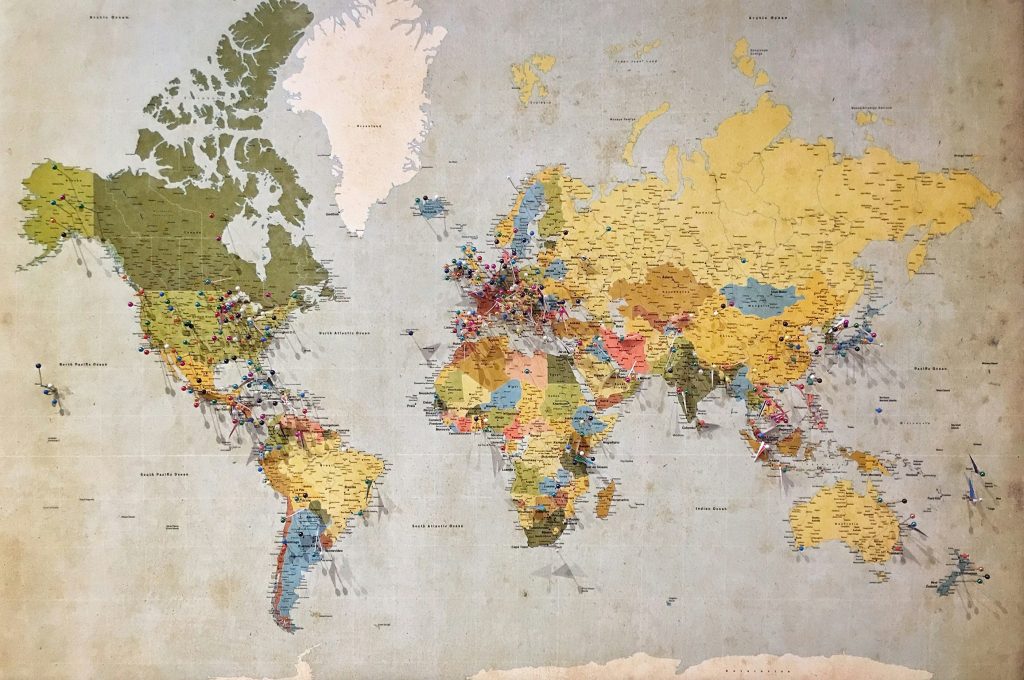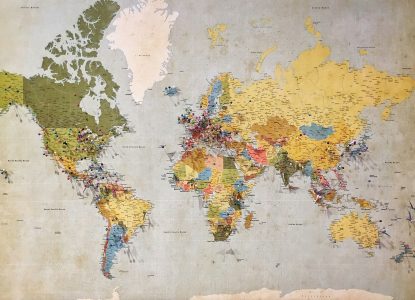By JoAnne Wadsworth, Communications Consultant, G20 Interfaith Forum
— —
On September 24, 2024, the G20 Interfaith Forum, in collaboration with the Berkley Center for Religion, Peace & World Affairs at Georgetown University, hosted a webinar titled “Religious Action as Part of the Global Alliance to End Hunger and Poverty.” This event was the first in a series of five webinars leading up to the G20 Summit in Rio de Janeiro, focusing on priority recommendations from the G20 Interfaith Forum to world leaders. The webinar brought together experts from various organizations to discuss the critical issues of hunger and poverty, the role of religious communities in addressing these challenges, and the proposed Global Alliance Against Hunger and Poverty. Speakers included Rev. David Beckmann (Circle of Protection and founder of Bread for the World), Saulo Ceolin (Ministry of Foreign Affairs of Brazil), Asma Lateef (SDG2 Advocacy Hub), Andrea Kaufmann (World Vision), and Sir Samuel Zan Akologo (Caritas Africa), with Katherine Marshall (Vice President of the G20 Interfaith Forum Association) moderating the discussion.
The webinar opened with Katherine Marshall, Vice President of the G20 Interfaith Forum Association, introducing the series and its focus on priority recommendations for the upcoming G20 Summit. She emphasized the importance of religious communities as central players in the global fight against hunger and poverty.

Rev. David Beckman, founder and president of Bread for the World, set the stage by highlighting the progress made against hunger and poverty in recent decades. However, he noted that this progress has stalled and, in some cases, reversed. Beckman stressed the need for renewed political commitment and introduced the proposed Global Alliance Against Hunger and Poverty, set to launch at the G20 summit. He emphasized the role of faith communities, stating,
” Today, about one in every 10 people in the world live in extreme poverty. This has been an extraordinary liberation. But progress against hunger and poverty has in fact stalled and in many respects, it’s been reversed. Our main problem is that the governments and people of the world now have other priorities. The basic problem is a lack of political commitment… People of faith can help to create political change through elections… but also by joining and supporting organizations, advocacy organizations.”
Saulo Ceolin, from the Brazilian Ministry of Foreign Affairs provided updates on the Global Alliance’s status. He explained that foundational documents have been unanimously endorsed by G20 ministers and invited organizations to join the alliance. Ceolin emphasized the need to address root causes beyond just providing food, saying,
“We want to go beyond just providing food, just go beyond charitable work, if we want to address the root causes like debt, conflict, inequality and impacts of climate change, and we know that faith communities already do a lot in this area.”
Asma Lateef, director of Bread for the World Institute and interim executive director for the Alliance to End Hunger, highlighted the significance of Brazil putting hunger and poverty at the center of their G20 agenda. She discussed efforts to raise awareness about the Global Alliance through an open letter and events. Lateef also stressed the importance of accountability and alignment in global efforts, as well as the need for increased financing. She noted,
“I think it’s worth saying that it isn’t every day that a G20 presidency puts hunger and poverty at the very center of their agenda. This is really significant. The last time there was a global hunger initiative by the G20 was 15 years ago in another food crisis, and here we are at a time where yes, there’s a food crisis, but there are also a number of compounding crises. This is really significant because it puts the attention on the opportunity that we have to come together as a global community to address hunger and poverty.”
Andrea Kaufmann, from World Vision brought a personal touch to the discussion by sharing stories of children affected by hunger and malnutrition globally. She highlighted the role of faith communities in addressing hunger at local and global levels, including emergency response, sustainable agriculture, and advocacy. Kaufmann encouraged participation in nutrition dialogues and policy advocacy, stating,
“Faith communities play a crucial role in addressing hunger and nutrition issues, whether in affluent cities in the United States or in developing regions like Somaliland. These communities are often on the front lines, identifying and supporting the most vulnerable individuals and families who lack access to affordable, nutritious food. During the COVID-19 pandemic, a World Vision survey of faith leaders revealed that, after spiritual support, food assistance was the primary service provided by faith communities. This included food packages, meals, and other forms of nutritional support. Beyond emergency relief efforts like soup kitchens, faith communities also contribute to long-term solutions. Many faith actors are stewards of the land, including smallholder farmers, and promote nutrition-smart agriculture and climate-friendly practices that benefit both people and the planet.”
Samuel Zan Akologo of Caritas Africa provided valuable insights into the importance of food in African cultures and communities. He discussed how the commercialization of food systems is affecting rural communities in Africa and highlighted the interconnectedness of food, poverty, and cultural identity. Akologo called for reform of the global financial architecture to better support poor countries, noting,
“In Africa, food is deeply intertwined with cultural identity, community life, and traditions. It plays a central role in worship, festivals, and various aspects of daily life. However, this traditional relationship with food is undergoing significant changes, particularly in rural communities. Years of disruptions in global and local food systems have led to the increasing commercialization of food. As a result, traditional farming systems in Africa are breaking down. Families who were once self-sufficient in food production now find themselves needing income to purchase food. This shift has brought the issue of poverty into sharp focus. When we consider absolute poverty, defined as the lack of resources necessary for a fulfilling life, we can see how the commercialization of food, combined with low income levels in rural communities, is leading to the collapse of domestic family systems. Many families are unable to meet their basic food needs, highlighting the critical intersection of food security, economic stability, and cultural preservation in Africa.”
Q&A and Conclusion
During the Q&A session, several important points were addressed:
- Gender focus: The speakers confirmed that the initiative includes a strong focus on girls and women, recognizing their unique vulnerabilities and roles in food security.
- Corruption and governance: It was acknowledged that addressing corruption and improving governance are inseparable from efforts to combat hunger and poverty.
- Indigenous perspectives: The importance of including indigenous knowledge and practices in developing sustainable solutions was emphasized.
- Youth engagement: Strategies for involving young people in hunger and poverty alleviation efforts were discussed.
- Technology’s role: The potential of technological innovations in improving food production and distribution was explored
The webinar concluded with calls to action for individuals and organizations to support the Global Alliance Against Hunger and Poverty, engage in advocacy, and participate in upcoming events related to these issues. Speakers emphasized the unique role that faith communities can play in addressing hunger and poverty, from grassroots efforts to global policy advocacy.
As the world looks towards the G20 Summit in Rio de Janeiro, this webinar highlighted the critical importance of renewed commitment to ending hunger and poverty. By bringing together diverse perspectives and emphasizing the role of religious communities, the G20 Interfaith Forum is working to ensure that these vital issues remain at the forefront of global discussions and action plans.
— —
JoAnne Wadsworth is a Communications Consultant for the G20 Interfaith Forum Association and Editor of the Viewpoints Blog.


